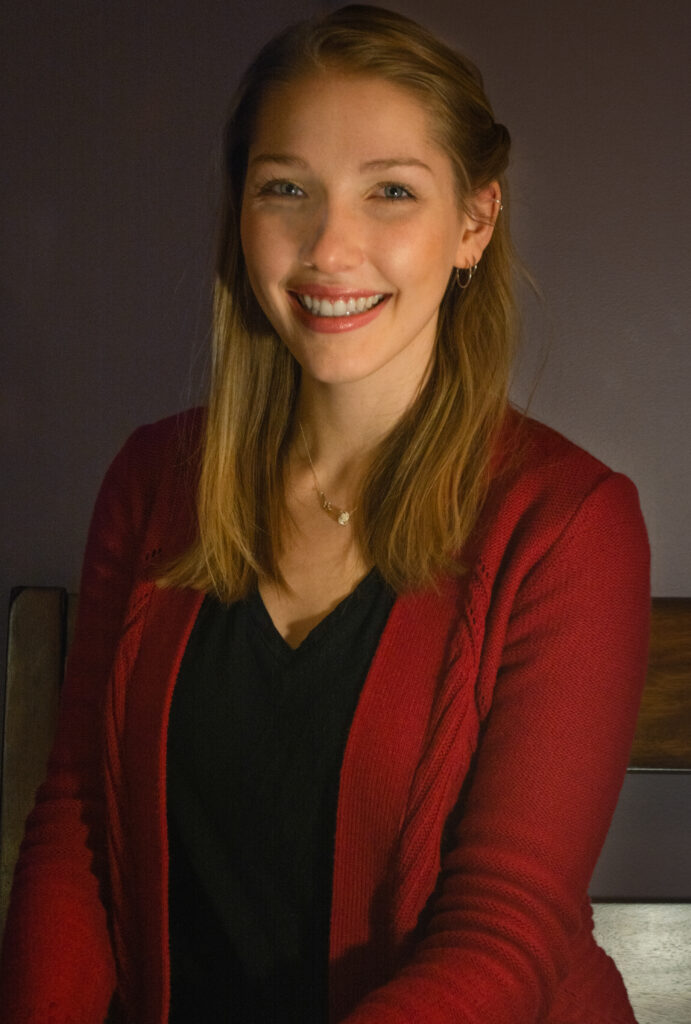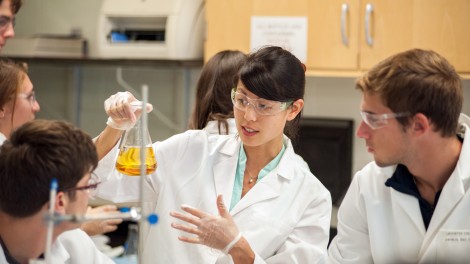Chemical engineering student seeks to improve properties of biodiesel as greener alternative to diesel fuel

Sasha Neefe ’21
By Bryan Hay
Sasha Neefe ’21 (chemical engineering, environmental studies minor) recently received first place honors for her poster in the fuels and petrochemicals group at the 2020 Virtual AIChE Annual Student Conference.
“Winning this award means so much to me,” she says. “I learned and grew so much from working on this research project, as it challenged my level of analytical understanding, instrumentation, and methodology. Additionally, the high level of independence that was required for this project allowed me to gain a deeper understanding of working in a lab and solving challenging problems.”
Neefe has been working with Lindsay Soh, Kate and Walter A. Scott ’59 Scholar in Engineering and associate professor of chemical and biomechanical engineering, since she was a first-year student.
Her research project presented on the award-winning poster is centered on renewable fuels, specifically biodiesel. Neefe studied an alternative reaction to producing biodiesel, which results in a co-product in the biodiesel that may improve the resultant fuel’s cold-flow properties.
“I utilized different vegetable oils using this alternative reaction to produce biodiesels with varying compositions of different compounds,” she says. “These differing compositions, as well as how much of the vegetable oil was converted into biodiesel during the reactions, influenced the cold-flow properties. Overall, this research is an important step toward improving the properties of biodiesel to make it a competitive and viable fuel option.”
Biodiesel can be sourced from plants, animal fats, or food waste, rather than from nonrenewable fossil fuels. “When biodiesel is combusted, it emits significantly fewer toxic pollutants and greenhouse gases than fossil fuels, thus, it is a greener alternative to diesel fuel,” Neefe says.
Despite its environmental benefits, there are still some issues with the production and use of biodiesel, she notes.
“On the production side, the typical reaction used to make biodiesel has a low-value byproduct that must be removed from the biodiesel before use,” Neefe explains. “Regarding applicability, biodiesel has some properties that make it undesirable in everyday use because it has poor cold-flow properties compared to diesel, which basically means that it becomes a solid at too high of temperatures. If we tried to use biodiesel in vehicles during the winter here at Lafayette, it would freeze in the engines, which is not useful.”
Neefe credits Soh for teaching her how to troubleshoot and prepare for experimentation and data analysis throughout the project.
“I definitely would not have been able to achieve this recognition without her guidance and encouragement to always strive for excellence in every facet of the project,” Neefe says. “Starting in June 2021, I will be working as a full-time intern at the National Renewable Energy Laboratory in Colorado, studying biomass and the valorization of lignin as it applies to the biorefining industry. After this experience, I plan to pursue a Ph.D. in environmental engineering and continue to take part in challenging research toward sustainable solutions to our environmental crisis as I continue my career in engineering.”
AIChE is the world’s leading organization for chemical engineering professionals, with more than 60,000 members from more than 110 countries. Its annual student conference brings together student engineers from more than 150 schools to celebrate the chemical engineering profession.


